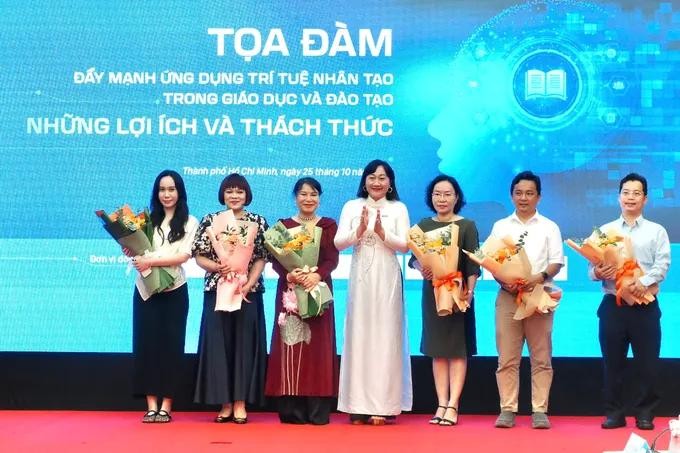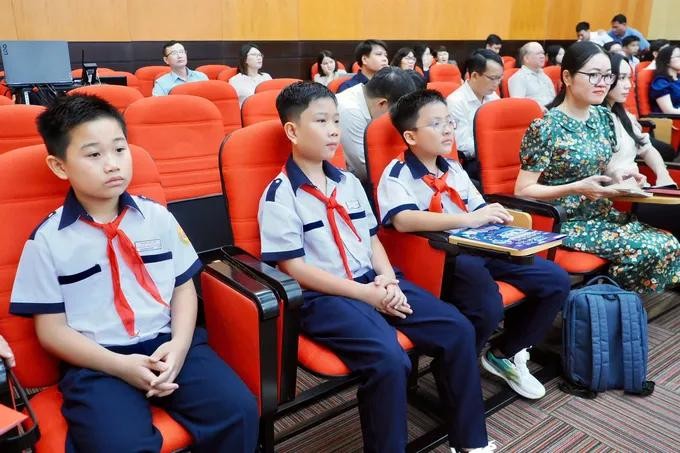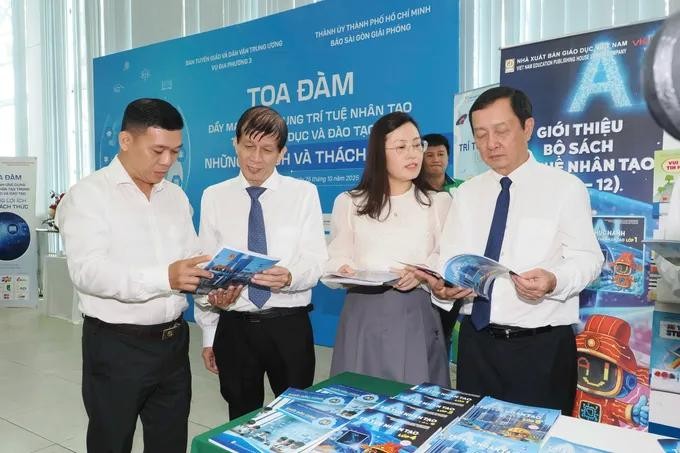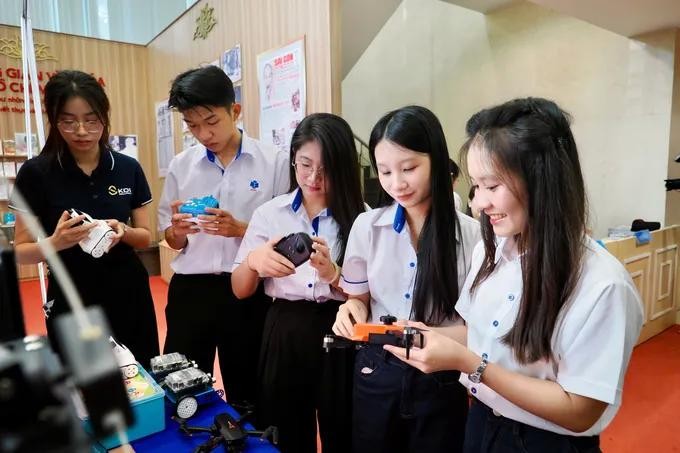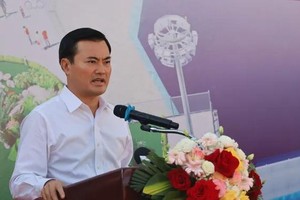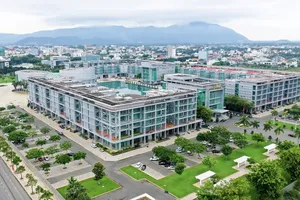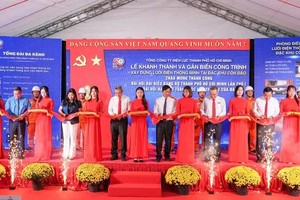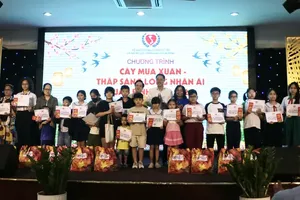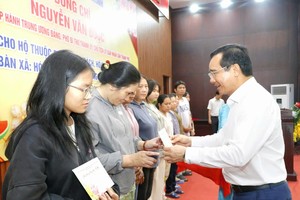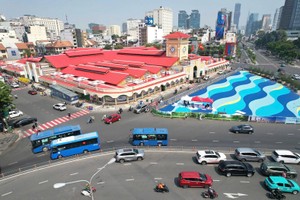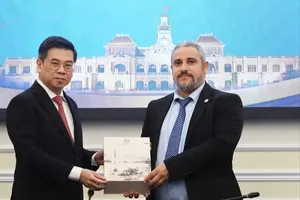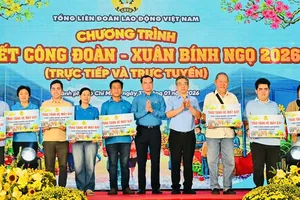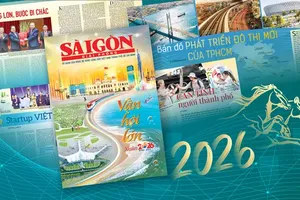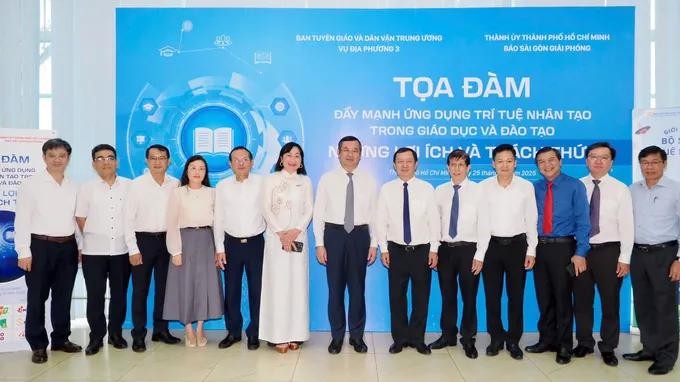
The seminar aimed to clarify the spirit of Resolution 71-NQ/TW, issued by the Politburo on August 22, 2025, which calls for a “comprehensive digital transformation, widespread adoption, and robust application of digital technology and artificial intelligence” in the breakthrough development of education and training. It also addressed Government Resolution 281/NQ-CP dated September 15, 2025, which outlines eight key priority tasks and promulgates the Action Program to implement Resolution No. 71-NQ/TW.
The application of artificial intelligence (AI) is opening significant opportunities for personalized education, enhancing self-directed learning, innovating teaching methods, and promoting lifelong learning. However, these advancements are accompanied by challenges, including the digital divide, AI ethics, data security, and technology dependency.
The program was attended by Deputy Head of the Central Propaganda and Mass Mobilization Commission Huynh Thanh Dat and heads of departments under the commission, including Head of Local Affairs Department 3 Nguyen Huy Ngoc, Head of the Health and Sports Department Bui Ngoc Quy, Head of the Science and Technology Department Phan Viet Phong, Deputy Head of the Education Department Le Thi Mai Hoa.
In addition, there were Deputy Minister of Education and Training Nguyen Van Phuc, Director of the Southern Center for Education and Training Development Le Thang Loi, Director of the Department of Social Sciences, Humanities, and Natural Sciences under the Ministry of Science and Technology Tran Quoc Cuong.
From the city’s leadership, there were Head of the Propaganda and Mass Mobilization Commission of the HCMC Party Committee Duong Anh Duc, and Deputy Head of the Propaganda and Mass Mobilization Commission Tang Huu Phong.
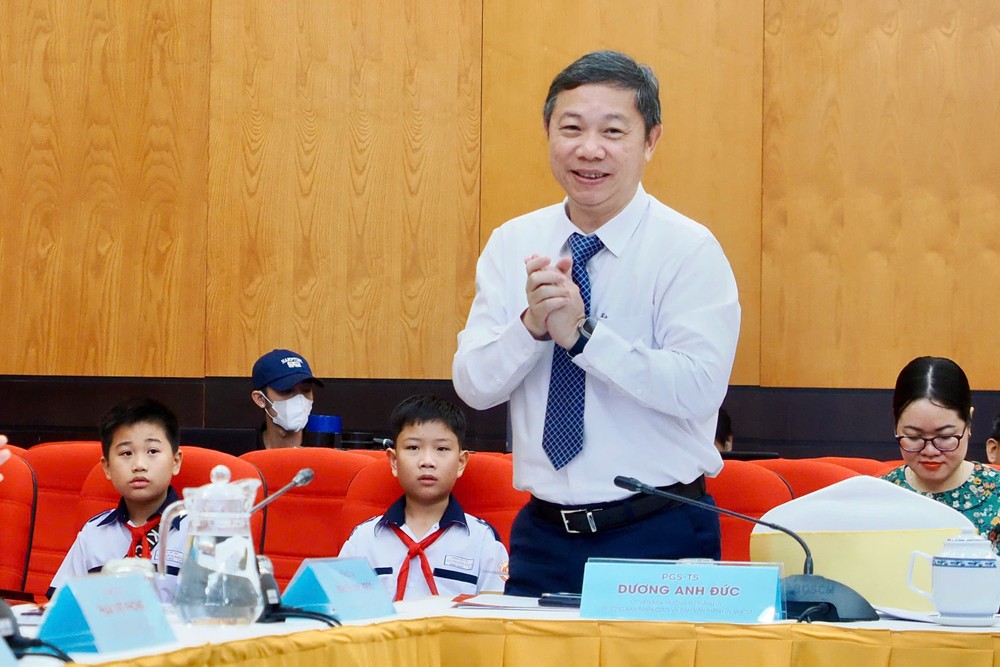
Representing Sai Gon Giai Phong Newspaper were Acting Editor-in-Chief, journalist Nguyen Khac Van and Deputy Editor-in-Chief Bui Thi Hong Suong.
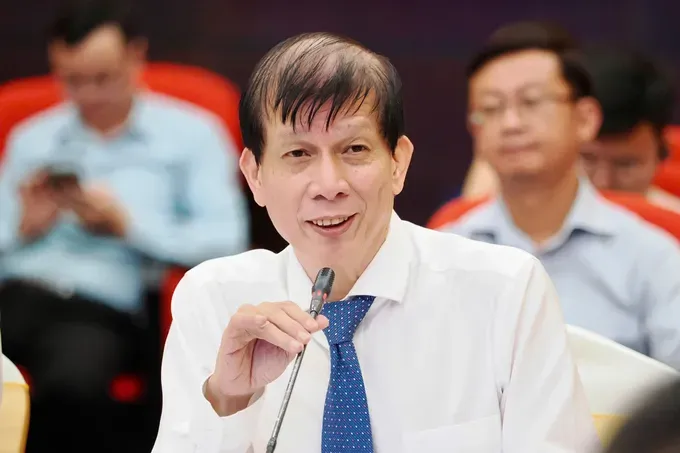
Acting Editor-in-Chief of Sai Gon Giai Phong Newspaper, journalist Nguyen Khac Van (Photo: SGGP/Hoang Hung)
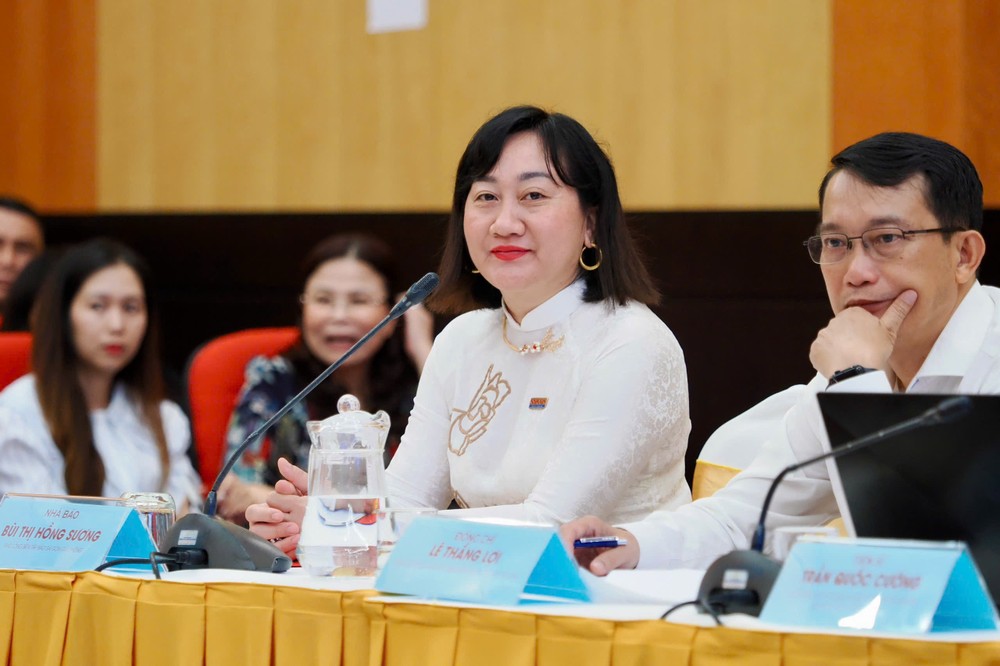
In addition, the program was attended by leaders of the Ho Chi Minh City Department of Education and Training and the Department of Science and Technology, along with representatives of high schools and universities in the city.
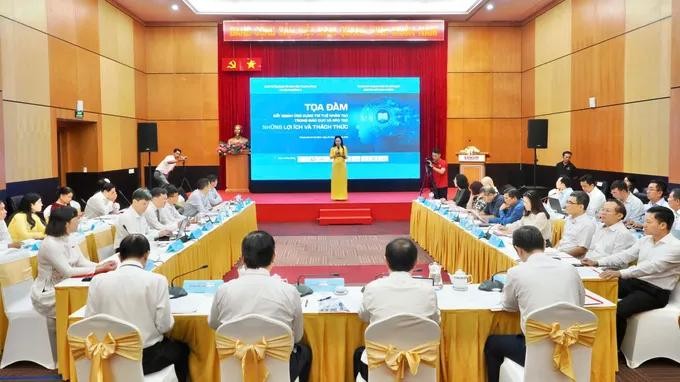
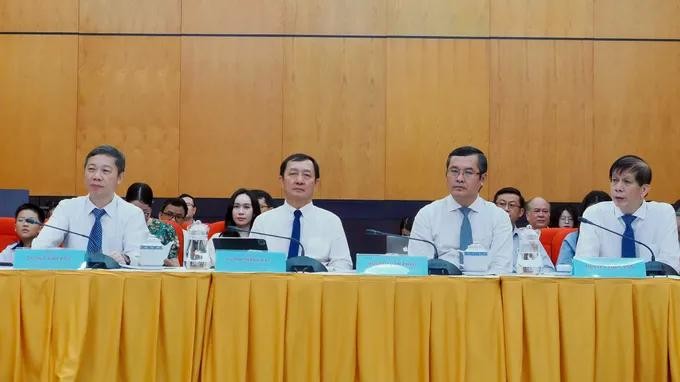
In his opening remarks at the seminar, Acting Editor-in-Chief of Sai Gon Giai Phong Newspaper, journalist Nguyen Khac Van, emphasized that Resolution 71-NQ/TW, issued by the Politburo on August 22, 2025, identifies a strategic breakthrough task: “Comprehensive digital transformation, widespread adoption, and robust application of digital technology and artificial intelligence in education and training.”
He noted that this is not merely a guiding policy but a practical imperative, requiring Vietnam’s education sector to proactively adapt and innovate its thinking, models, and methods in order to keep pace with, advance alongside, and potentially surpass global development trends.
Early practical experience indicates that AI is opening numerous new opportunities for Vietnam’s education sector, such as expanding access to knowledge, narrowing regional disparities, and promoting greater equity in learning. It fosters personalized education, enabling each student to realize their full potential; stimulates creativity; enhances learners’ capacity for self-directed study and research; and drives innovation in teaching methods. AI also contributes to building a learning society and cultivating lifelong learning habits within the community.
However, alongside these significant benefits, the application of AI in education presents numerous challenges, from data security, academic ethics, and teachers’ digital competence to the risks of technology dependence and infrastructure disparities between regions. How to ensure that AI serves humanity rather than replaces it and that technology genuinely promotes fairness and human-centered values in education remains a critical subject for in-depth discussion and deliberation at the seminar.
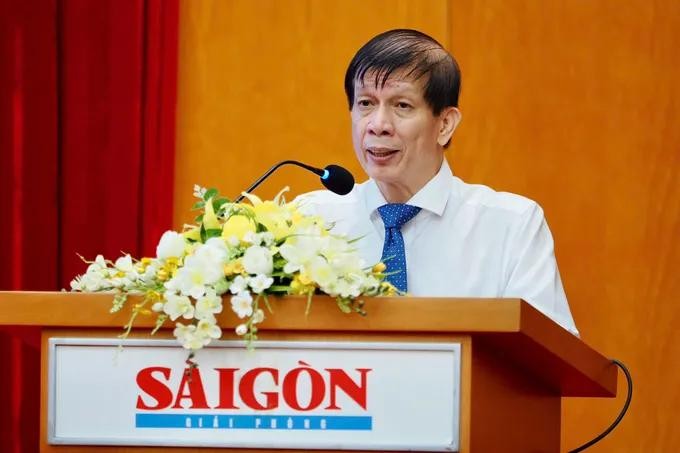
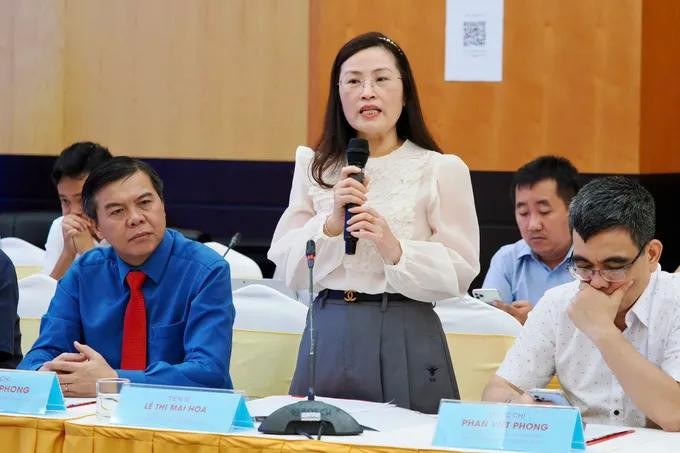
Commenting on the urgency of accelerating the application of artificial intelligence in education and training, Dr. Le Thi Mai Hoa, Deputy Head of the Education Department under the Central Propaganda and Mass Mobilization Commission, put forward six key recommendations. These include:
- Developing a national “AI Literacy” program for students and teachers across all educational levels, from primary and secondary schools to high schools;
- Strengthening the training and professional development of teachers in digital skills and ethical AI usage;
- Integrating AI into STEM subjects (mathematics, physics, chemistry, and computer science);
- Establishing a framework for academic ethics and responsible AI use in research and teaching
- Investing in digital infrastructure and developing “Made in Vietnam” AI platforms compatible with Vietnamese data and language;
- Promoting awareness-raising and communication campaigns on AI in education, targeting educational institutions, schools, local authorities, learners, educators, and the wider educational community.
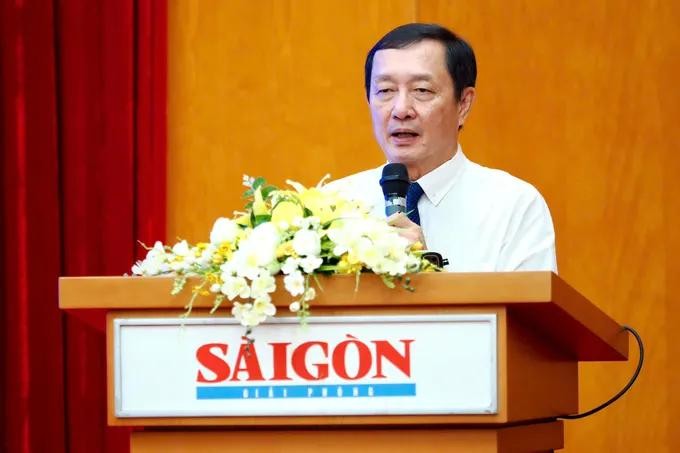
Deputy Head of the Central Propaganda and Mass Mobilization Commission, Huynh Thanh Dat, commended and praised Sai Gon Giai Phong Newspaper for proactively proposing and coordinating the seminar in the current context. He noted that the event not only addressed the timeliness and practical relevance of the issue but also ensured scientific rigor, objectivity, and policy-guiding value in propaganda efforts, contributing to the dissemination of the Party’s resolutions into social life.
He called on the Ministry of Education and Training and the Ministry of Science and Technology to promptly advise the Government on issuing guiding documents for implementing the AI Strategy in education, particularly the AI Ethics Framework for schools and AI curricula and materials for the general education system.
In addition, he proposed that the Government and relevant ministries consider establishing a Digital Transformation Fund for higher education—a strategic investment fund with breakthrough mechanisms and policies designed to attract social resources and encourage businesses to invest in digital infrastructure and AI solutions in education.
Regarding higher education institutions, there is a need for proactive and pioneering training, embracing innovation and learning from successful models rather than passively relying on external solutions.
Moreover, the business community must shift its mindset, moving from the role of a passive “employer” to that of an active co-creator of human resources.
Finally, media and press agencies should continue their mission of raising awareness about both the benefits and challenges of AI, fostering social consensus, and cultivating a proactive, well-prepared mindset for citizens to engage with global integration.
